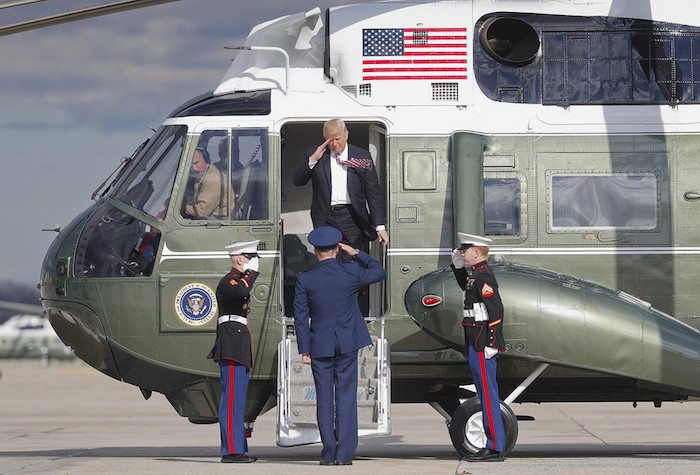Short-term benefits aside, America’s partners in the Middle East will all suffer in the end if estrangement from the region becomes the norm of U.S. foreign policy.
Middle East chatter is filled with talk about how the budding romance between Israel and Sunni Arab states will transform the region. Will these newfound “allies,” as Israeli Prime Minister Benjamin Netanyahu called them in Washington last month, join forces to counter Iran’s nefarious designs for regional hegemony? Will they work together to achieve a breakthrough in the Israeli-Palestinian peace process? Or do they have an even grander design to form a mini-NATO, sharing intelligence, anti-missile defense, cyber-warfare strategies and counter-terror forces for the sake of their common defense?
As worthy as these targets are for cupid’s Middle East arrow, they miss the mark. The top priority for Arab-Israeli cooperation should not be in the Middle East but, odd as it sounds, it should be in Washington.
This is where Israelis, Saudis, Emiratis, Jordanians and Egyptians will find the most important question affecting their collective security: Namely, will the Trump administration decide to lead by investing the money, manpower and political capital to address the rot at the heart of the Middle East, or will it suffice with an “Obama-plus” strategy of strictly limiting America’s exposure to the region’s endemic problems, masked by a kinder, gentler, more indulgent attitude toward our traditional allies?
Pursuing both policies — engagement and retrenchment — is not really possible. But President Trump’s words provide evidence to support both approaches. The person who promised “to dismantle” the Iran nuclear deal, “knock the hell” out of ISIS and “extinguish” the ideology of radical Islamic extremism is, for example, the same person who authorized fairly minor Obama-like sanctions on Iranian officials when Tehran waved a brazen ballistic missile test under his nose and who railed against getting stung by the “hornet’s nest” of the Middle East, where Americans already lost “$6 trillion” over the past two decades with little to show for it.
True, Trump has promised to “straighten out” the “mess” he inherited from his predecessors, but it’s not clear which “mess” he will fix and how.
Will he focus his administration more on the “urgent” problem of the Islamic State or the “important” problem of Iran’s regional ambitions?
Does he consider Russia and its key local partner, Iran, as instigators of the region’s ailments, beneficiaries of the region’s dysfunction, or essential players in fixing the region’s problems?
When, through their terrorist proxies, Iran’s ayatollahs threaten American partners and test American resolve, will he rise to the challenge and risk escalation?
After Mosul and Raqqa are liberated, does he have the attention span and staying power to keep a substantial U.S. presence in Iraq and Syria to ensure that the next generation of Sunni jihadists doesn’t emerge from the rubble of the anti-ISIS campaign?
Even more broadly, does he have the strategic foresight to knock heads together to come up with a plan to save Egypt from economic collapse now, rather than face political collapse — and the potential of a failed state on Israel’s border — before the end of his term?
If Arab and Israeli strategists are meeting behind closed doors to map out plans for their collective defense — and I fear there is less of this than is commonly believed — these are the questions that should focus their attention. After all, no single factor will have as much impact on the security and defense of both Israel and Sunni Arab states in coming years as the willingness of President Trump to provide effective leadership to the region’s camp of pro-West, pro-stability countries. Their common objective should be to convince the President that it is in America’s interest to play that role.
In his early days in office, President Trump has already shown a warmth toward Israel and an openness to longtime allies like Egypt; that approach has been reciprocated by the praise of leaders from other Mideast countries, such as the Saudi foreign minister’s tribute to him as a “pragmatic problem-solver.” So far, so good.
But it is not too difficult to imagine that overall administration policy could see improvement in key bilateral relations that soured under Obama while maintaining Obama’s reluctance to roll up his sleeves and get his hands dirty on behalf of America’s longtime partners and their core security concerns. While some in the region may enjoy short-term benefits from that approach — more military sales and, perhaps, additional foreign aid — they will all suffer in the end if American estrangement from the region becomes the norm of U.S. foreign policy. At that point, they will truly find themselves as allies, stuck together in the same boat, adrift without a captain.
Robert Satloff is executive director of The Washington Institute.

